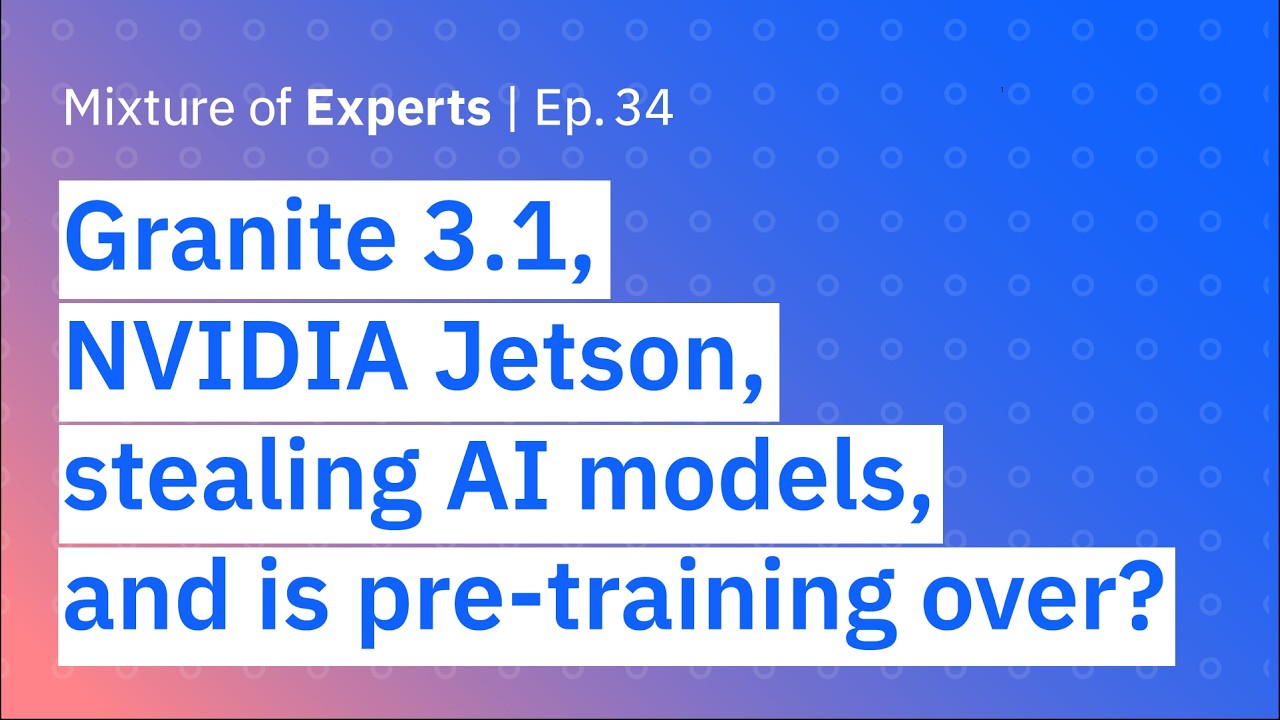In the episode of “Mixture of Experts,” the panel discusses the potential end of the pre-training era in AI, emphasizing the importance of data quality over quantity and the need for robust filtering methods to mitigate biases in both human-generated and synthetic data. They also address security concerns related to AI model exfiltration, the release of IBM’s Granite 3.1 model, and the democratization of AI tools through NVIDIA’s new Jetson supercomputer, which aims to make AI development more accessible to hobbyists and developers.
In a recent episode of “Mixture of Experts,” host Tim Huang discusses the evolving landscape of artificial intelligence with guests Vagner Santana, Volkmar Uhlig, and Abraham Daniels. The conversation begins with the topic of pre-training in AI models, sparked by a keynote from Ilya Sutskever at the NeurIPS conference, where he suggested that we may be at “peak pre-training.” Vagner expresses concern about the increasing reliance on synthetic data, highlighting the lack of methods to detect such data and the potential biases that could be perpetuated in future models. Abraham adds that while pre-training is not over, there is a shift towards focusing on inference and model optimization rather than solely on data quantity.
The discussion shifts to the importance of data quality, with Volkmar emphasizing that both human-generated and machine-generated data can be flawed. He argues that the assumption that human-generated data is inherently better is misleading, as both types of data can contain biases and inaccuracies. The panelists agree that the future of AI will require a more nuanced understanding of data quality and the need for robust filtering methods to ensure that models are trained on reliable information. This conversation highlights the growing recognition that simply accumulating more data is no longer sufficient for improving AI performance.
The episode also covers the recent release of Granite 3.1, a new model from IBM, which includes enhancements such as a longer context window and improved instruction-following capabilities. Abraham explains that the longer context length allows for processing larger documents and more complex queries, which is particularly beneficial for enterprise applications. Additionally, the Granite Guardian models are designed to address safety concerns by detecting biases and hallucinations in AI outputs. The panelists discuss the balance between openness in AI development and the need for safety measures to prevent misuse of models.
Security in AI infrastructure is another critical topic addressed in the episode, particularly in light of recent model exfiltration attacks. Vagner highlights a study that demonstrated how researchers could reverse-engineer AI models by monitoring electromagnetic emissions from hardware. Volkmar discusses the importance of securing AI models and the need for robust infrastructure to protect proprietary data. The conversation underscores the ongoing challenges in ensuring the confidentiality and integrity of AI models, especially as they become more integrated into enterprise applications.
Finally, the episode concludes with a discussion about NVIDIA’s new Jetson supercomputer, aimed at hobbyists and developers. Volkmar explains that this affordable board is designed for low-power applications, such as robotics, and allows users to leverage NVIDIA’s ecosystem for model deployment. The panelists reflect on the democratization of AI tools and the potential for increased accessibility, particularly in developing countries. Abraham notes that as AI development becomes more plug-and-play, it opens up opportunities for a broader range of users to experiment and innovate in the field of artificial intelligence.
